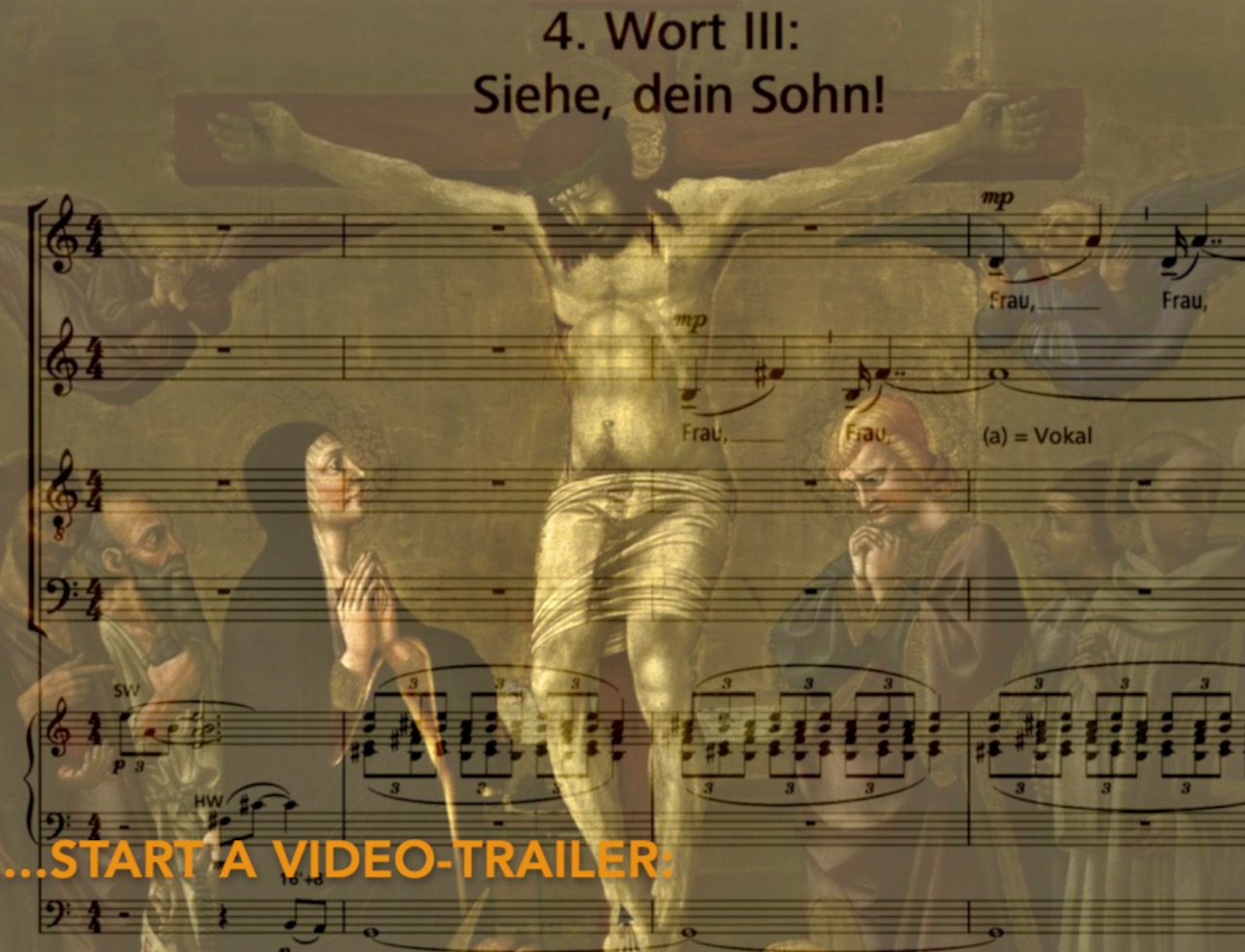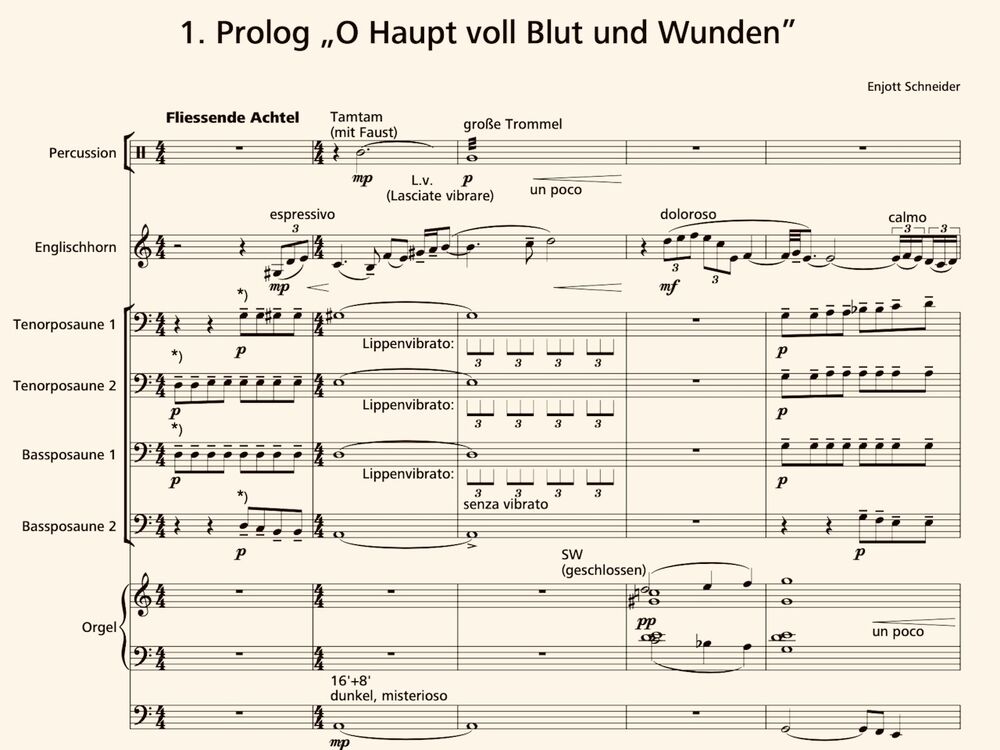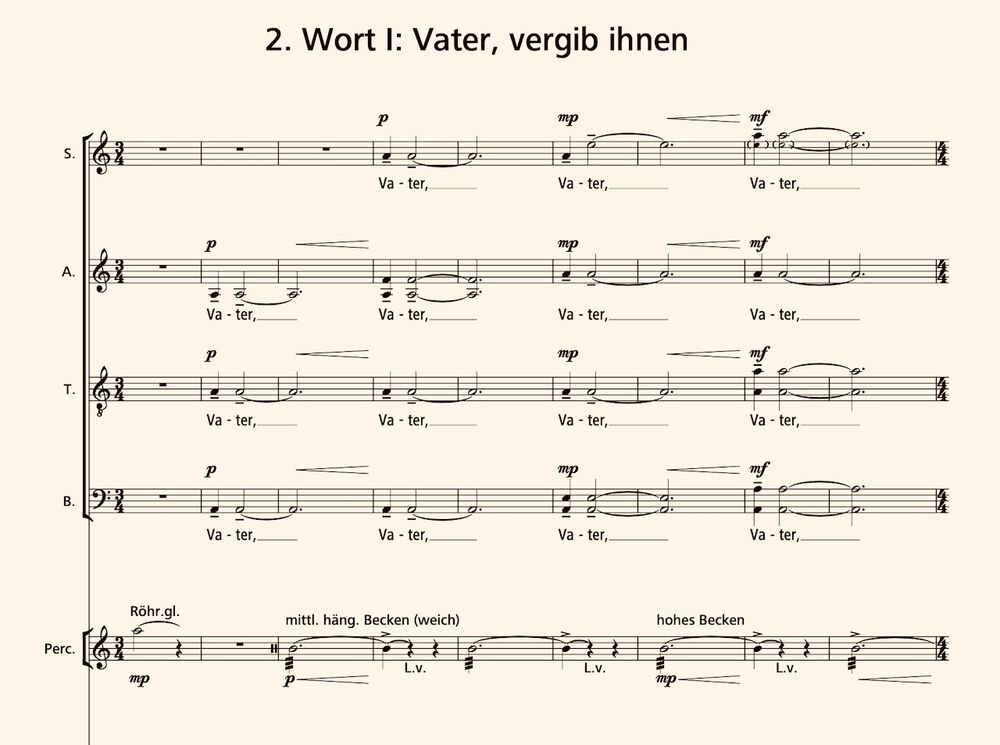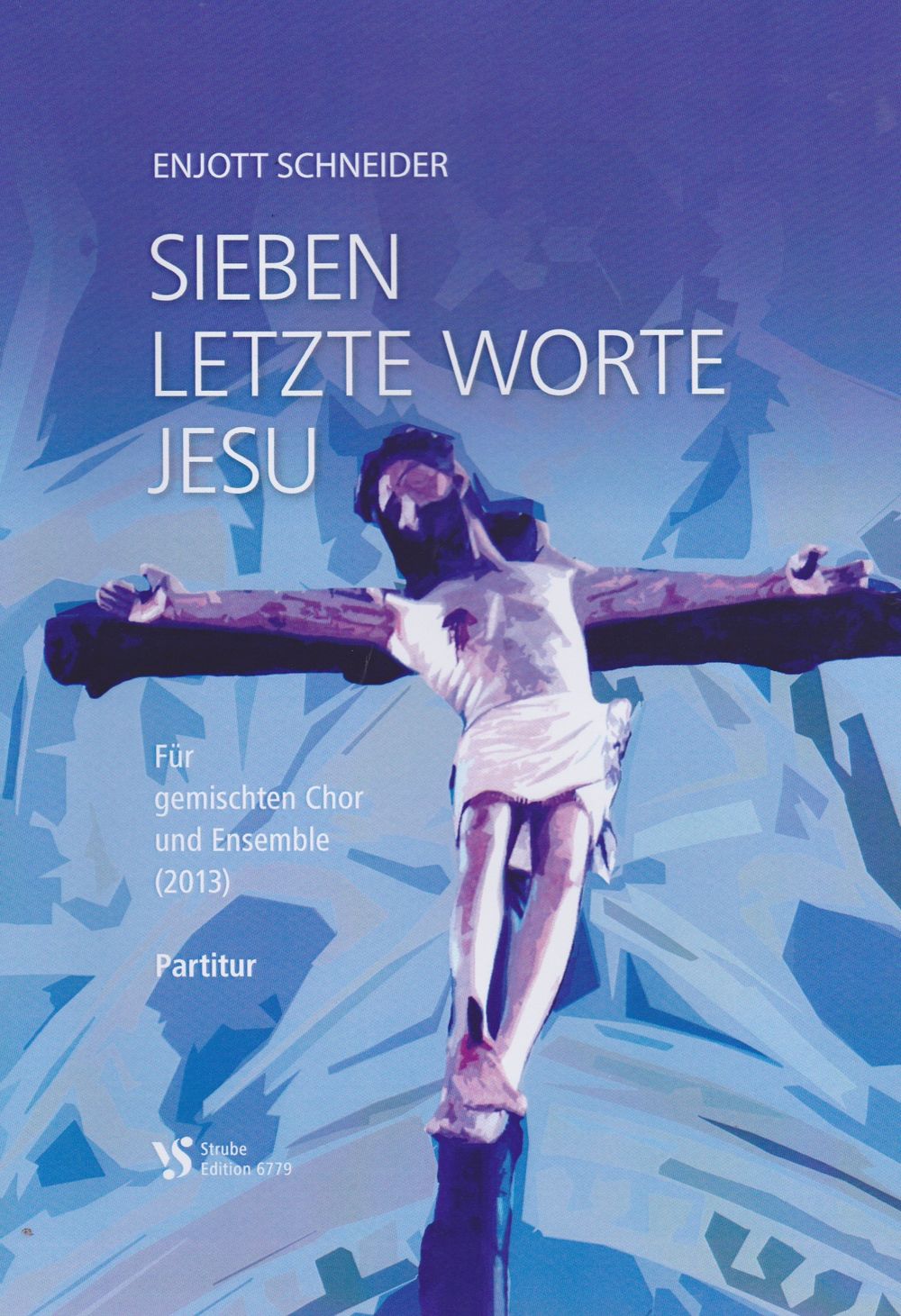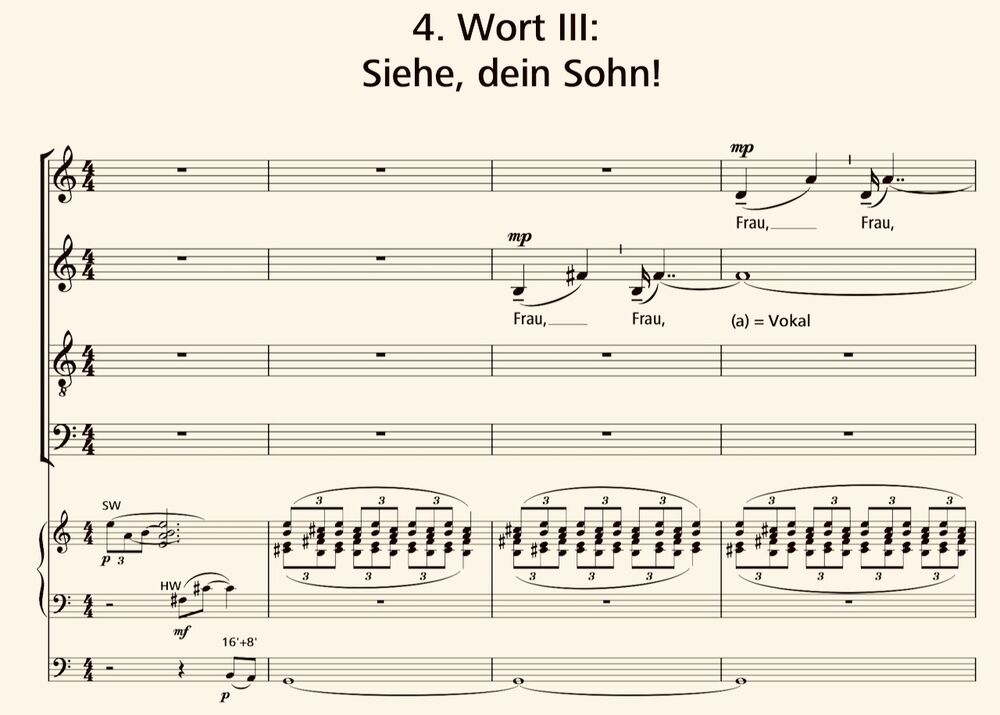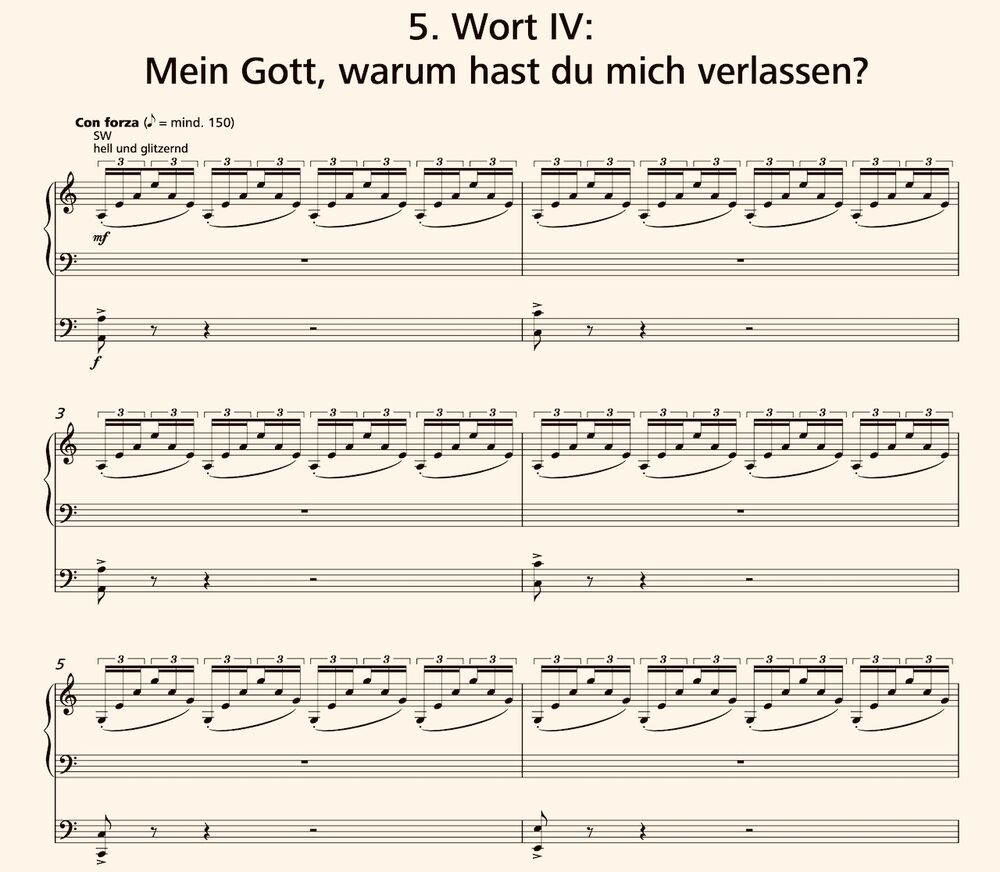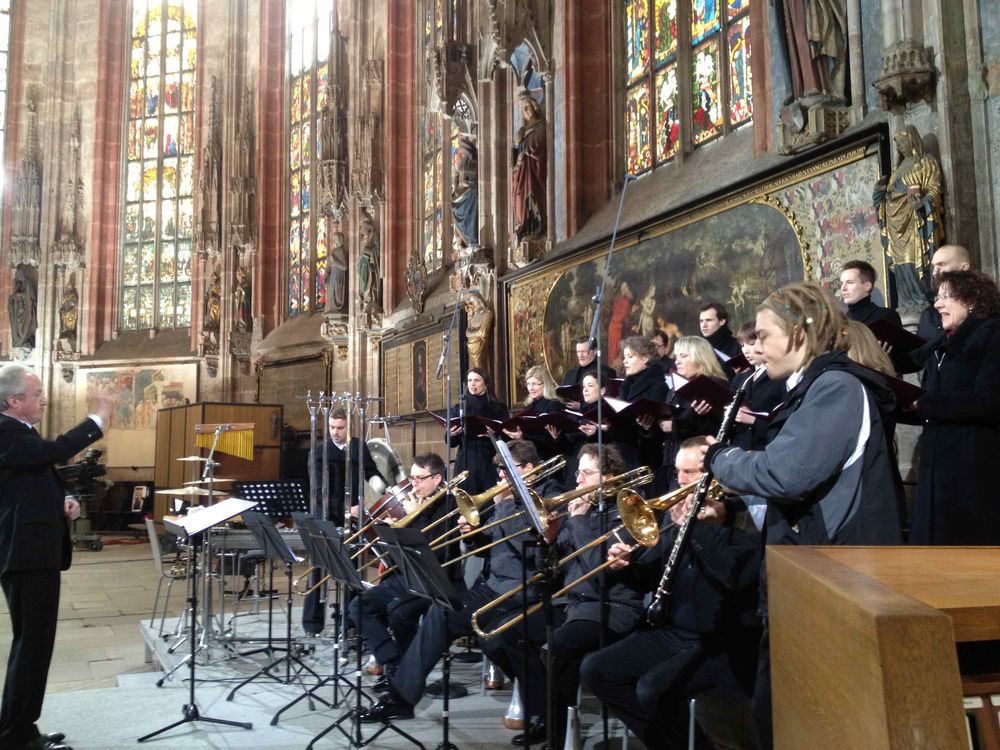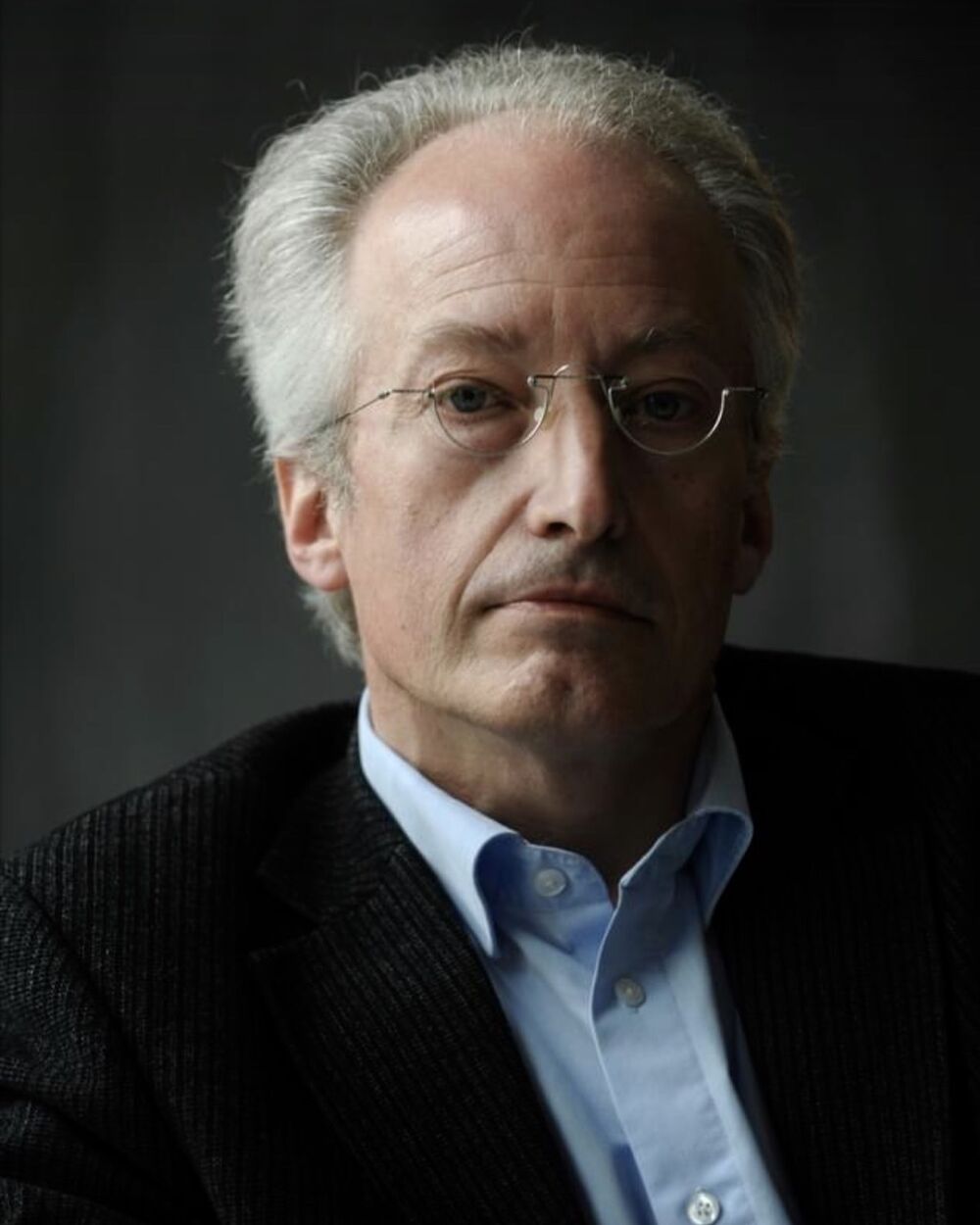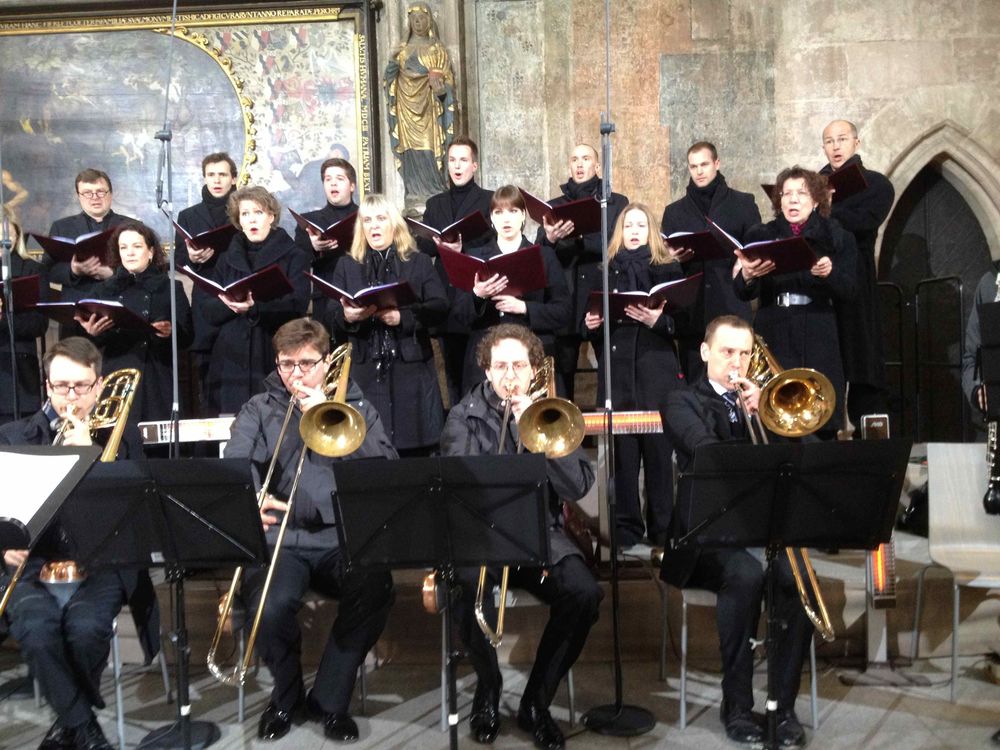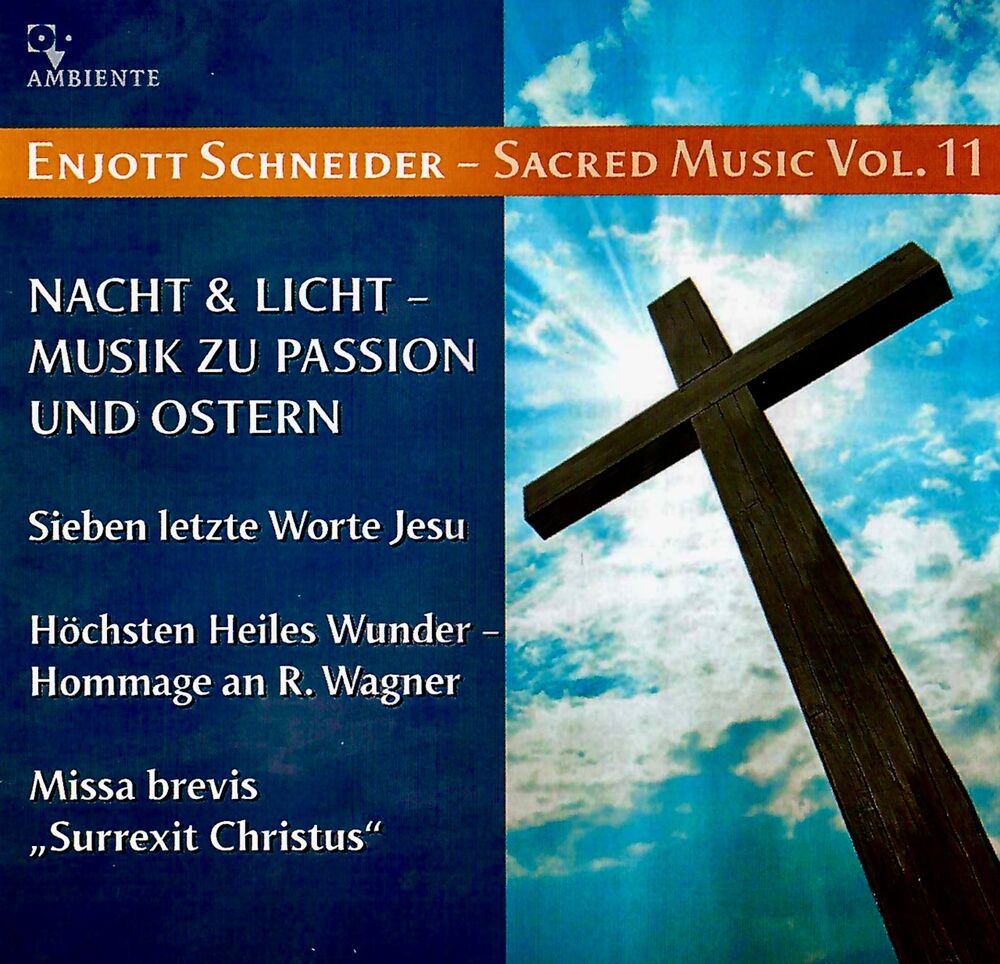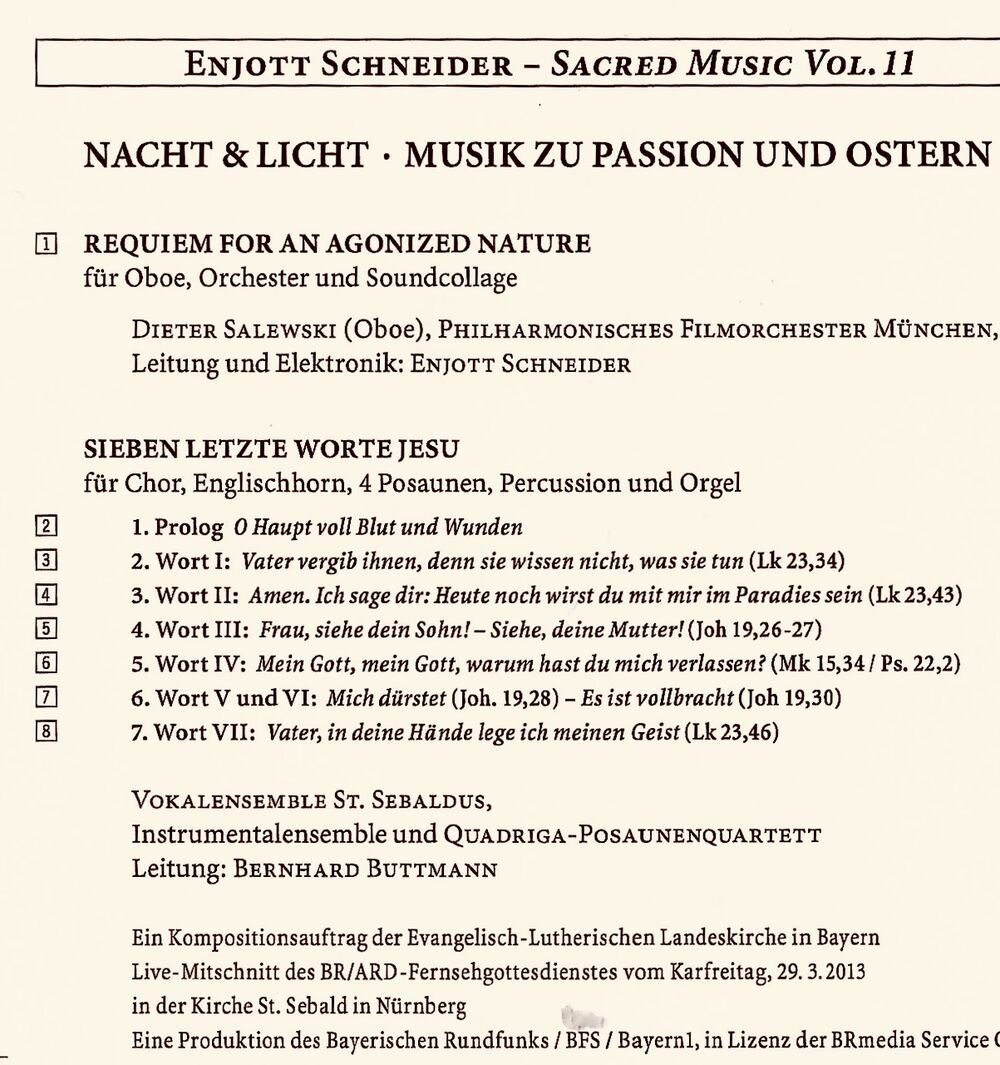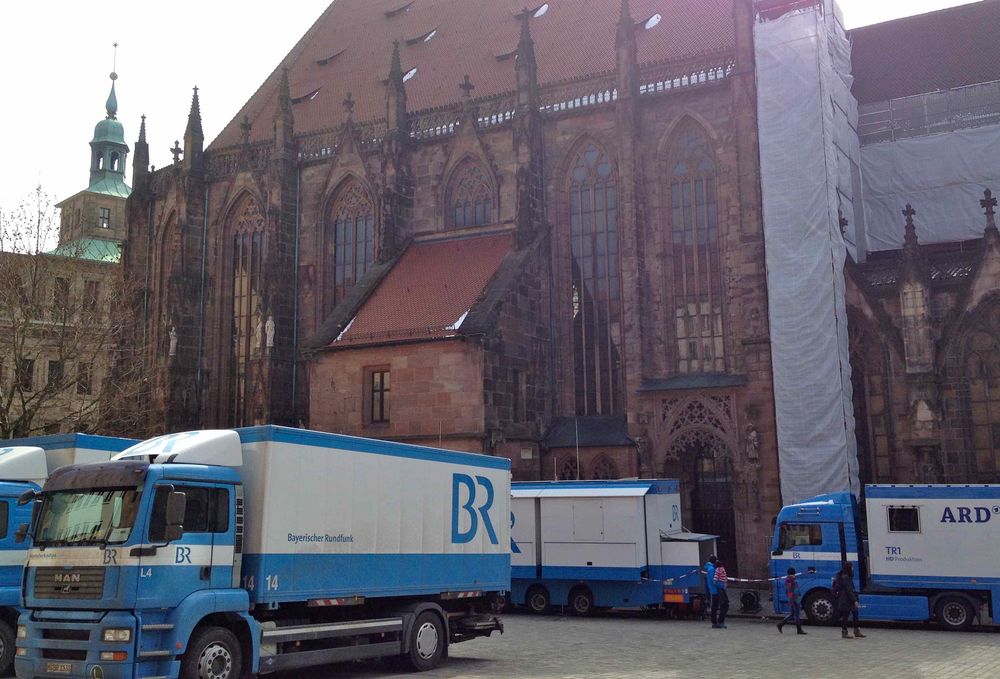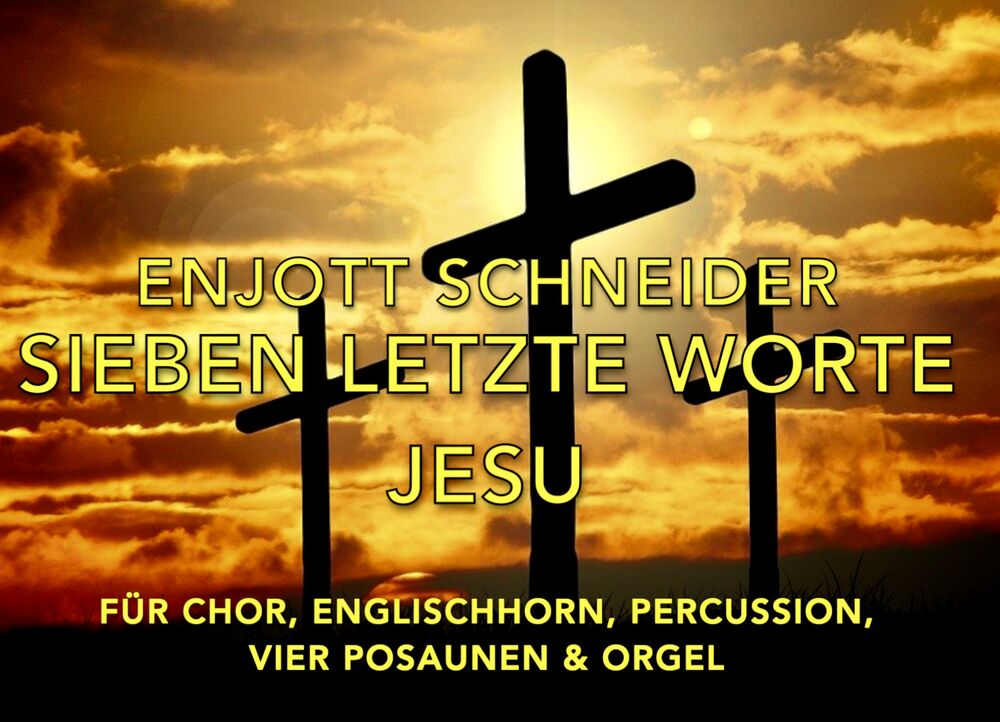
Category: Choir / Vocal , Organ / Sacred Music
The crucifixion was probably the most brutal form of execution: with endless pain and in the deeply humiliating nakedness of the blazing sun, it was an agonising death, bleeding to death and dying of thirst. For this reason, this setting deliberately resorts to a harsh, woodcut-like gesture that combines archaic elements of medieval tonality (long drones, ostinati and bell-like repetitions) with the possibilities of more modern stylistic devices to create highly expressive and emotional music. The instrumental scoring is unusual: four trombones (the mighty trombones of the Apocalypse) announce the end, the percussion is hammering, also used very ritually and combines - quite unusually - above all with the organ to create a sometimes merciless sound scenario.
See below with Photo Nr. 1 the start of a short Video-Trailer.
Movements: 1: Prologue "O Sacred Head Now Wounded"
2: 1st Word: Father, forgive them
3: 2nd Word: Today you will be with me in paradise
4: 3rd Word: Woman, behold your son!
5: 4th Word: My God, My God, why have you forsaken me
6: 5th and 6th Words: I thirst. It is finished.
7: 7th Word: Father, into your hands I commit my spirit
Duration: 22 minutes
Publisher of notes/sheet music: Strube Verlag Munich , 2013
Instrumentation: Choir (S A T B), cor anglais, 4 trombones (T-T-B-B), percussions and organ
Solo instruments: Orgel, Englisch Horn
Text/Lyrics by: Biblical words, translation: Martin Luther
Introduction: In Roman antiquity and the ancient Orient, crucifixion was probably the most brutal form of execution: with endless pain and in the deeply humiliating nakedness of the blazing sun, it was an agonising death, bleeding to death and dying of thirst. For this reason, this setting deliberately resorts to a harsh, woodcut-like gesture that combines archaic elements of medieval tonality (long drones, ostinati and bell-like repetitions) with the possibilities of more modern stylistic devices to create highly expressive and emotional music. The instrumental scoring is unusual: four trombones (the mighty trombones of the Apocalypse) announce the end, the percussion is hammering, also used very ritually and combines - quite unusually - above all with the organ to create a sometimes merciless sound scenario that is able to powerfully point to a mystical event of faith that has lasted for thousands of years.
This powerful tonal language is contrasted by the delicate and plaintive cor anglais (a tenor oboe) as the solo instrument: it is regarded as the Romantic "instrument of death" par excellence (for example in Wagner's "Tristan" or in Sibelius' "Swan of Tuonela") - and immediately conjures up a magical world of consolation and transcendence towards the divine. In this ambivalence of relentless power and sweet oboe tone pointing to mercy and forgiveness, the elemental force of the "Seven Words of Jesus" can unfold in many facets: they are among the most important texts of Christianity and come from all four gospels in the sense of a "gospel harmony".
The number "seven" also has great symbolic power as a number of completion and transition: the week is rounded off with seven days, the tone scale is traversed with seven notes in order to reach the next octave, seven rainbow colours are contained in white light, crystallogy knows seven crystal axis systems and, above all, in the atomic structure of the world and its elements, everything is structured with up to seven times the number of electrons in order to then - as the periodic table made us familiar with - periodically raise itself to a higher energy level (to a new octave) with the number eight. - At the centre of the setting are the words - almost ecstatically shouted by the choir - "My God, why have you forsaken me?" - which can already be found in Psalm 22 as "eli, eli, lama, asawtani" in the Old Testament of the Jewish tradition. This also gives the work a timeless and universal aura.
My composition was written for the Good Friday service broadcast by BR and ARD in 2013 in St Sebald Nuremberg and was both inspired and interpreted by the German bishop Heinrich Bedford-Strohm.
Dedication: Sincerely dedicated to Bernhard Buttmann, my musical companion
World premiere: 29.03.2013, St. Sebald / Nuremberg
Performers at world premiere: Premiere: ARD church service in St. Sebald Nuremberg on Good Friday, 29th of March, 2013 10-11.00 AM, also live on BR Klassik and Deutschlandfunk
Cond.: Bernhard Buttmann
Records: 2013
